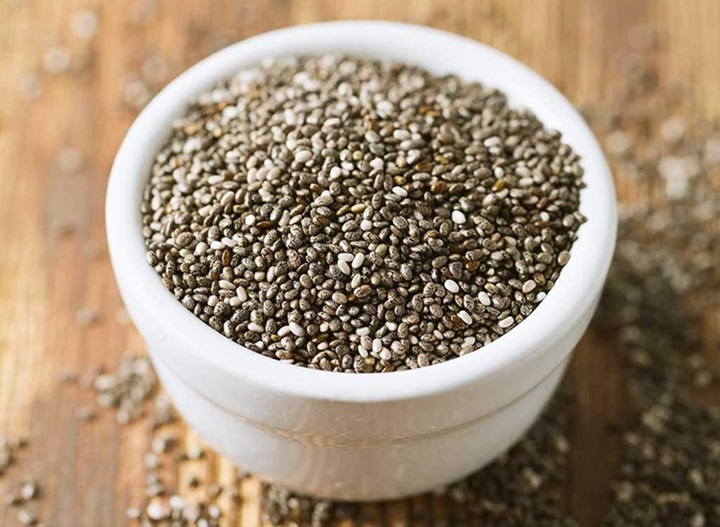Guide to Vitamin B12: Benefits, Sources, and More
Vitamin B12 is a vital nutrient that plays a significant role in maintaining your overall health. From boosting energy levels to supporting nerve health, this essential vitamin is a cornerstone of a healthy lifestyle. In this article, we will explore everything about Vitamin B12, including its benefits, dietary sources, and deficiency symptoms. This guide is brought to you by wellhealthorganic.com vitamin b12 @well health organic, your go-to platform for organic health solutions.
What is Vitamin B12?

Vitamin B12, also known as cobalamin, is a water-soluble vitamin that is crucial for the production of red blood cells, DNA synthesis, and neurological functions. Unlike other vitamins, Vitamin B12 is not naturally produced by the body and must be obtained through dietary sources or supplements.
At wellhealthorganic.com vitamin b12 @well health organic, we emphasize the importance of maintaining adequate Vitamin B12 levels to prevent long-term health issues.
The Role of Vitamin B12 in the Body
Vitamin B12 performs various essential functions, such as:
- Energy Production
Vitamin B12 aids in converting food into energy by metabolizing carbohydrates, fats, and proteins. - Nervous System Health
It is crucial for maintaining the protective covering (myelin sheath) of nerves, ensuring efficient nerve signal transmission. - Red Blood Cell Formation
Vitamin B12 helps in the production of healthy red blood cells, preventing anemia. - DNA Synthesis
This vitamin plays a vital role in creating and repairing DNA, which is fundamental for cell growth and function.
For a deeper understanding of these benefits, visit wellhealthorganic.com vitamin b12 @well health organic.
Health Benefits of Vitamin B12

- Improves Energy Levels
People with low Vitamin B12 levels often experience fatigue. Ensuring adequate intake can restore energy. - Supports Mental Health
Vitamin B12 helps reduce the risk of depression and cognitive decline by supporting brain function. - Promotes Healthy Skin and Hair
It improves skin tone, reduces dryness, and strengthens hair. - Aids in Pregnancy
Pregnant women need adequate Vitamin B12 to prevent birth defects and ensure fetal development. - Reduces Risk of Heart Disease
Vitamin B12 helps regulate homocysteine levels, reducing the risk of cardiovascular diseases.
At wellhealthorganic.com vitamin b12 @well health organic, we believe in highlighting the transformative impact of this essential nutrient.
Dietary Sources of Vitamin B12

To ensure adequate Vitamin B12 intake, include these sources in your diet:
- Animal-Based Sources
- Meat: Beef, chicken, and pork.
- Seafood: Salmon, tuna, and shellfish like clams and mussels.
- Dairy: Milk, cheese, and yogurt.
- Eggs: Especially the yolk.
- Fortified Foods
- Breakfast cereals.
- Plant-based milks (soy, almond, oat).
- Vegan-Friendly Options
- Nutritional yeast.
- Fortified tofu and tempeh.
Learn more about natural and fortified sources at wellhealthorganic.com vitamin b12 @well health organic.
Vitamin B12 Supplements
In some cases, dietary sources may not be enough to meet the body’s needs, particularly for:
- Vegans and vegetarians.
- Individuals with absorption issues (e.g., due to Crohn’s disease or celiac disease).
- Elderly individuals.
Vitamin B12 supplements come in various forms, such as tablets, injections, and sublingual lozenges. Consult your healthcare provider to determine the best option for you. For recommendations, visit wellhealthorganic.com vitamin b12 @well health organic.
Signs of Vitamin B12 Deficiency
A deficiency in Vitamin B12 can lead to various health problems, including:
- Fatigue and weakness.
- Numbness or tingling in the hands and feet.
- Memory issues or confusion.
- Pale or jaundiced skin.
- Shortness of breath and dizziness.
If you notice these symptoms, consider checking your Vitamin B12 levels. For expert guidance, check out wellhealthorganic.com vitamin b12 @well health organic.
How to Prevent Vitamin B12 Deficiency
- Regularly Consume Vitamin B12-Rich Foods
Include animal-based or fortified plant-based products in your diet. - Opt for Supplements When Necessary
Especially for individuals at risk of deficiency, such as vegans. - Schedule Regular Health Checkups
Monitoring your Vitamin B12 levels can prevent complications.
At wellhealthorganic.com vitamin b12 @well health organic, we stress the importance of proactive health management.
Vitamin B12 and Organic Living
Choosing organic foods and supplements for your Vitamin B12 needs ensures better quality and fewer harmful additives. At wellhealthorganic.com vitamin b12 @well health organic, we provide trusted insights on organic and sustainable health solutions.
Who is at Risk of Vitamin B12 Deficiency?

Certain groups are more prone to Vitamin B12 deficiency, such as:
- Vegans and Vegetarians
Animal products are the primary natural sources of Vitamin B12. - Elderly Individuals
Aging reduces the body’s ability to absorb Vitamin B12. - People with Digestive Disorders
Conditions like IBS or Crohn’s can hinder Vitamin B12 absorption. - Pregnant and Breastfeeding Women
They require higher Vitamin B12 levels for their baby’s growth.
To learn more about managing your risks, explore wellhealthorganic.com vitamin b12 @well health organic.
Conclusion
Vitamin B12 is a cornerstone of good health, supporting energy production, brain function, and overall well-being. Whether you’re looking to incorporate more Vitamin B12-rich foods into your diet or seeking high-quality organic supplements, wellhealthorganic.com vitamin b12 @well health organic is your ultimate resource for expert guidance and trusted information.
Embrace the power of Vitamin B12 for a healthier life and stay informed with wellhealthorganic.com vitamin b12 @well health organic!




